SDP Western Province
Medical Student Clinical Placement Program
The SDP Rural Medical Education Australia (RuralMedEd) Griffith University final year medical student clinical placement program at Balimo and Morehead Hospitals, Papua New Guinea (PNG) is designed to enhance the medical education of final-year medical students through hands-on experience in a rural and resource-limited setting in Western Province Papua New Guinea. The program is a collaboration between RuralMedEd, SDP (PNG Sustainable Development Program Ltd) Griffith University and the staff at Balimo/Morehead Hospitals. Placements will be of six-week duration, with two students planned per rotation per hospital.
Program Objectives
1. Clinical Skills Development: Students will rotate through various hospital departments, including emergency, theatre, maternity, and general wards, where under supervision, they will assess, admit, and treat patients.
2. Public Health Engagement: Participation in community health initiatives, including immunisation programs, maternal and child health services, malaria and TB treatment, and health promotion activities.
3. Cultural Immersion: Students will live within the community, engage in local cultural activities, and participate in community health promotion activities, fostering a deeper understanding of the local context and health issues.
Pre-Departure Training
- Prior to departure, students will participate in lectures and tutorials covering:
- Health issues prevalent in the region (Malaria, TB, Dengue Fever, HIV, and birthing practices).
- Cultural competency and language basics
- Clinical skills relevant to the context of PNG
A positive rural medicine experience
Experience in working within a clinical team
Opportunities to develop your professional practice
Opportunities to work as part of a multidisciplinary team
Continued support to pass assessments
Skills for success in internship and life
In-Country Activities
1. Hospital Work:
- Daily work in various hospital departments under the supervision of the Medical Superintendent and local doctors.
- Participation in theatre and maternity ward activities
- Involvement in emergency care and patient admissions.
- Students may be rostered by the Medical Superintendent to offer weekly hospital staff training in basic life support, neonatal resuscitation, infection control guidelines, implementation of intravenous fluid protocols and medication dispensing procedures.
2. Community Engagement:
- Living with the local community.
- Living with the local community. · Shopping at local markets, participating in football or swimming lessons for children, and joining weekly walking groups.
- Participation in local health promotion activities
Field Work with SDP
- Travel by boat, plane/helicopter and foot to remote villages in Western Province
- Bolster the existing staff numbers and work alongside SDP staff on immunisation programs, maternal and child well-being services, malaria and TB treatment, and emergency care.
Schedule of Responsibilities
- RuralMedEd: Responsible for placement logistics, support, orientation, project development, and risk management. Facilitate student visa applications, arrange international and domestic flights (in and out of Port Moresby).
- Griffith University: Provides academic oversight, pre-departure training, and ensures positive learning outcomes through joint appointments and assessments, include the SDP placement in the University international elective program and ensure all students are placement ready.
- Balimo/Morehead Hospital: Provides supervision and teaching through local doctors, facilitates hospital rotations, and supports community health activities. Provides secure local accommodation.
- Students: Participate fully in clinical, community, and field activities, engage with local culture, and adhere to all guidelines and protocols, arrange flights to and from Port Moresby.
Risk Assessment
- Health Risks: Students will be briefed on health risks and preventive measures for diseases prevalent in the region (Malaria, TB, Dengue Fever, HIV).
- Safety Protocols: Emergency retrieval plans, insurance coverage for illness and medical negligence, and local emergency contact procedures will be in place.
- Cultural Sensitivity: Training on cultural norms and expectations to ensure respectful and effective interaction with the local community.
- Travel Risks: Detailed travel safety briefings, including guidelines for boat, plane/helicopter and foot travel to remote villages.
Insurance and Support
- Students will have comprehensive insurance coverage, including illness, emergency retrieval, and medical negligence.
- An experienced RuralMedEd staff member may accompany each rotation to provide additional support and ensure smooth operation.
Evaluation and Continuous Improvement
- Students will be supervised and assessed by local doctors, who may apply for Academic Titles at Griffith University with access to university library facilities.
- Regular evaluations and feedback from students, supervisors, and partners will inform ongoing improvements to the program.
- The program has the potential to upskill local hospital staff in Neonatal Resus, CPR to decrease the long-term disability of an inadequately resuscitated newborn, the skills to actively initiate lifesaving cardiac therapy and cardiac defibrillation.
The SDP Balimo/Morehead placement program aims to provide a transformative learning experience for medical students while contributing to sustainable health improvements in the Western Province region of PNG. Through direct clinical practice, public health engagement, and cultural immersion, students will gain a comprehensive understanding of healthcare in a rural and resource-limited setting. This program fosters stronger people-to-people and institutional relationships, offering mutual benefits for both students and local staff.
Students learn to deliver effective treatments with limited resources, while local staff benefit from the opportunity to discuss diverse treatment methods and establish collegial professional relationships. This collaboration supports ongoing professional development, access to specialist advice, and enhanced treatment options and differential diagnoses for patients.
